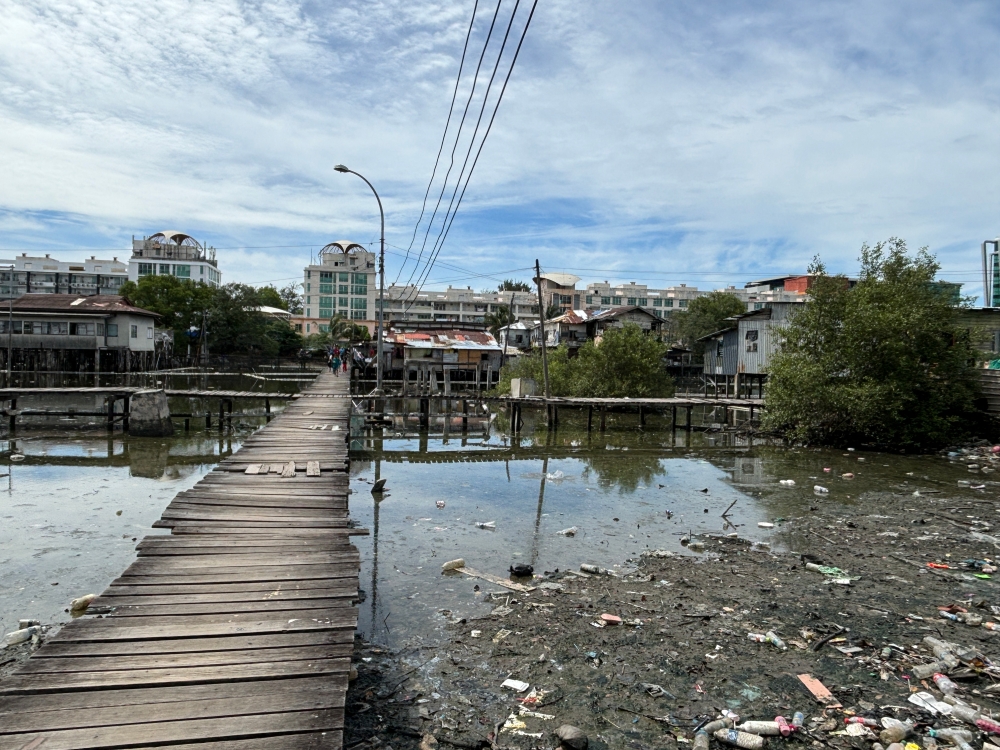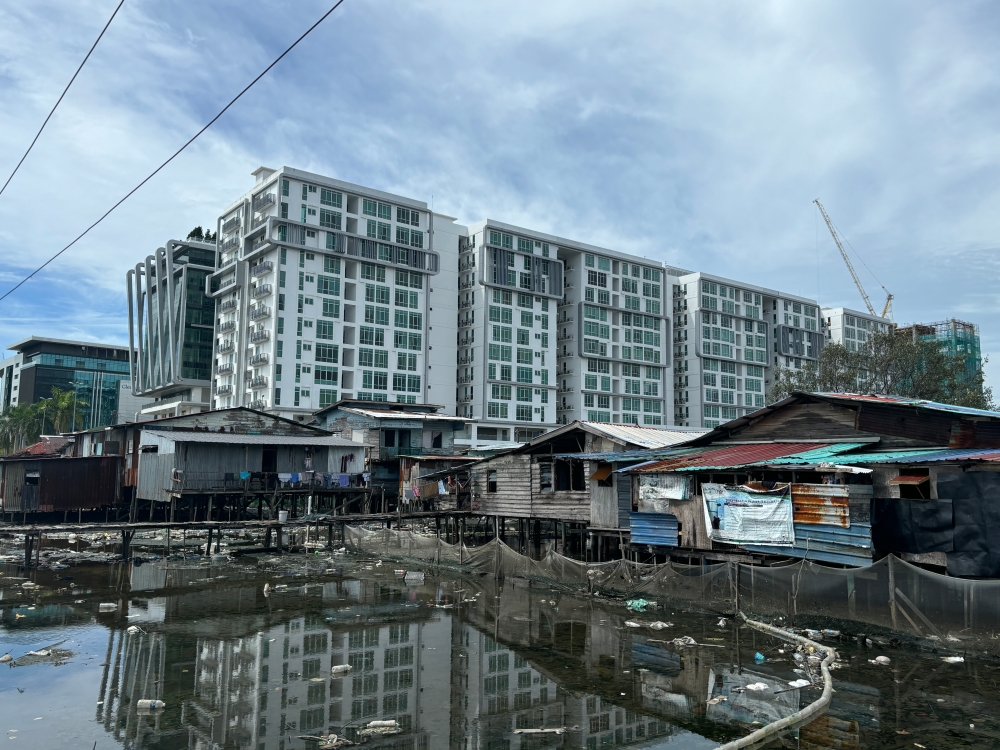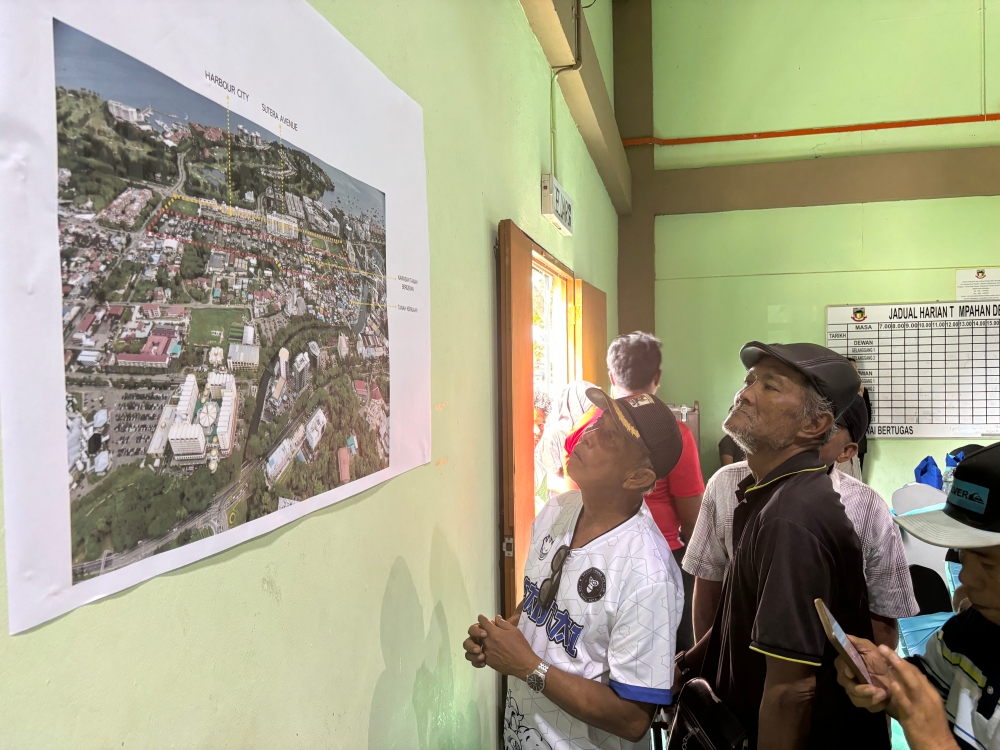KOTA KINABALU, Sept 27 — The Sembulan water village sits adjacent to the modern gleaming Imago Shopping Centre, a five-star resort, low rise condominiums, a championship golf course, and many modern restaurants and hotels on Sutera Avenue.
As long as anyone can remember, the pre-war water village of Sembulan has been a feature of the city since even before independence — a veritable landmark for locals who grew up here.
But despite its history, it has gone from wasteland to eyesore in the last few decades, so much so that previous city authorities have taken to boarding up its dilapidated homes with rickety walkways sitting atop murky stagnant waters from public view
The pre-war wooden houses on stilts have been described as an “urban slum”, a “drug den”, “criminal hotspot” and “home to illegal squatters.”
The area, now called Sembulan Tengah, has been targeted for a makeover multiple times; in 2012, Kota Kinabalu City Hall chose the area for their pilot programme to transform the village into a clean and beautiful settlement area by working on five aspects — cleanliness, beautification, security, orderliness and wellbeing.
In 2022, a non-governmental organisation Meraki Daat Sabah attempted to turn it into an Instagram-worthy tourist attraction under the “Project Picasso” community-based tourism project.

The project was to educate residents about proper waste segregation, sanitation, and treatment facilities, recycling and upcycling and repairing and repainting water village houses with murals that would eventually attract tourists with cafes, handicraft stalls, and even homestays.
In May 2024, a revised version of the Sembulan Urban Renewal Scheme was approved by the state Cabinet and the land put under DBKK’s jurisdiction.
The scheme was first mooted in the 1990s and had gone through phase one, focusing on the greater Sembulan area but further progress has stalled with the water village.
Although it began as a Chinese settlement and fishing village from the 1920s till the 1990s, the development of the state capital saw its surroundings being urbanised while Sembulan Tengah was largely left undeveloped and poorly managed.
Many blame it on the tenants — after the original settlers moved out, the resident demographic shifted to renters and migrant communities. The land or lot owners claim to have ancestral rights to the land although this is disputed by authorities.
The area is in contention because it involves some 42 acres of prime land which is a stone’s throw from major commercial areas and walking distance to the central business district.
Mayor Datuk Sabin Samitah told residents during a dialogue on September 21 that out of the 169 leases in the area, 105 have already expired, while 64 are still active.
Under the law, only those with active leases will be compensated, but Sabin said those with expired leases will also receive a token sum to be decided by the state government.
However, aside from a major clean-up exercise, there is no clear development plan for the area.

Residents claim rights to the land
Kampung Sembulan Tengah Residents and Welfare Association chairman Osman Omar Khan has been fighting against their eviction, after receiving a 14-day notice from City Hall and the Land and Survey Department on September 19.
Osman insisted that they had the right to be there and be adequately compensated if asked to leave. He said that they had a title, a country lease or “CL” that expired some 20 years ago without reason.
He demanded they be allowed to stay there and renew their lease or compensation in the form of housing, Hardcore Poor Housing Programme (PPRT), now called the Prosperous People’s Housing Programme.
“This is a historical struggle over land ownership. Previous governments used ‘dirty tactics’ to block landowners from renewing their leases, which led to our current situation,” he said during a dialogue last Saturday.
He also claimed the possibility of protests if their demands are not met.
However, the mayor was also reported saying that it was routine for the government to issue eviction notices to unauthorized housing settlements on government-owned land and the construction of structures without approval.

Sabin said based on inspection records, most of these lots are occupied by tenants rather than the original owners, whose lease terms have expired.
There are also houses built without the prior approval of the original owners, he said.
After the dialogue on September 21, Sabin placated the residents by postponing any demolition until another engagement with the original lot owners, scheduled for October 8, 2024.



















